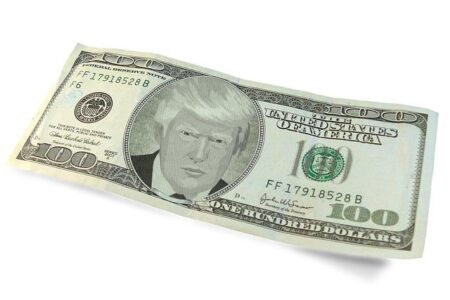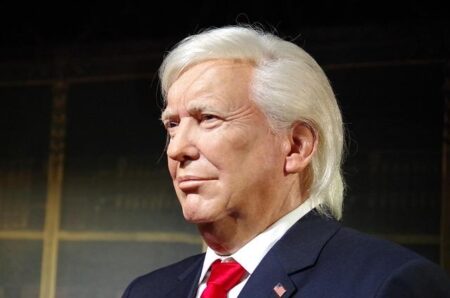Brazilian President Luiz Inácio Lula da Silva sharply criticized former U.S. President Donald Trump, stating that Trump was “not elected to be emperor of the world,” as tensions between the United States and Brazil continue to escalate. The remark highlights growing diplomatic friction amid differing political agendas and recent exchanges between the two nations. This unfolding spat underscores the complexities of the bilateral relationship and signals a more confrontational tone in their interactions moving forward.
Brazil’s President Challenges Trump’s Global Influence Amid Rising Diplomatic Tensions
Brazil’s President Luiz Inácio Lula da Silva has openly criticized former U.S. President Donald Trump’s approach to international leadership, emphasizing sovereignty and mutual respect among nations. During a recent public address, Lula asserted that Trump “was not elected to be emperor of the world,” reflecting growing dissatisfaction with unilateral American policies that marginalize allies and partners in Latin America and beyond. This statement arrives amid escalating diplomatic strain between Brasilia and Washington, fueled by disagreements over environmental policies, trade tariffs, and geopolitical alignments.
The tensions underline a shifting global dynamic where emerging powers like Brazil are increasingly asserting their own agendas. Key points in this thorny relationship include:
- Amazon Preservation: Brazil pushing back against perceived external interference in managing its natural resources.
- Trade Disputes: Disagreements over tariffs and market access continue to impact bilateral trade negotiations.
- Geopolitical Strategy: Brazil is exploring closer ties with other global players as alternatives to reliance on the U.S.
| Issue | Brazil’s Position | U.S. Position |
|---|---|---|
| Amazon Rainforest | Calls for sovereign control | Pressures for environmental oversight |
| Trade Tariffs | Seeks reduction and fairness | Implements protective tariffs |
| Military Alliances | Explores diversified partnerships | Maintains traditional dominance |
Implications of US-Brazil Disputes on International Relations and Trade Policies
The recent tensions between the US and Brazil underscore a growing shift in international diplomacy, where emerging powers such as Brazil assert a more independent stance against traditional Western influence. President Lula’s remarks signal a rejection of perceived US unilateralism, challenging the longstanding hierarchical dynamics in global governance. This evolving landscape compels both nations to reconsider their strategic priorities, potentially impacting regional alliances and multilateral cooperation frameworks such as the Organization of American States (OAS) and the G20.
From a trade policy perspective, the dispute threatens to disrupt key economic relationships and supply chains. Brazil, a vital exporter of agricultural commodities and raw materials, may seek to diversify its trade partners to reduce dependence on the US market. Conversely, Washington could adopt a more protectionist posture, leading to tariff adjustments and stricter regulatory measures. Key potential outcomes include:
- Reassessment of bilateral trade agreements with heightened scrutiny on market access and regulatory standards.
- Acceleration of South-South cooperation, particularly Brazil’s increased engagement with China and other emerging economies.
- Potential shifts in foreign direct investment (FDI), as businesses weigh geopolitical risks against market opportunities.
| Area of Impact | Possible Effect |
|---|---|
| Diplomatic Relations | Heightened tensions and reduced cooperation |
| Trade Tariffs | Introduction of new barriers on key exports |
| Investment Flows | Shift towards non-US markets |
| Regional Alliances | Bolstered South American unity independent of US influence |
Strategies for De-escalation and Strengthening Bilateral Cooperation Between Washington and BrasĂlia
In light of recent tensions, both Washington and BrasĂlia stand to benefit from targeted strategies that foster dialogue and mutual respect. Prioritizing transparent communication channels can prevent misunderstandings and create a foundation for constructive negotiation. Additionally, engaging in joint economic projects, such as sustainable energy initiatives and technology exchanges, could transform points of friction into shared opportunities. These efforts would not only cool current hostilities but also enhance the long-term strategic partnership between the two nations.
Key approaches to rebuild trust and cooperation include:
- Regular bilateral summits focusing on economic, environmental, and security issues
- Establishing crisis management teams for rapid response to diplomatic incidents
- Promoting cultural and educational exchange programs to strengthen people-to-people ties
- Enhanced collaboration on regional stability and multilateral forums
| Action | Expected Outcome |
|---|---|
| Monthly diplomatic briefings | Reduce misinterpretations in policy communication |
| Joint infrastructure projects | Boost mutual economic growth |
| Conflict resolution workshops | Build crisis management capacity |
| Student exchange programs | Foster long-term interpersonal understanding |
In Retrospect
As tensions continue to rise between the United States and Brazil, President Lula’s pointed remarks underscore the fraught nature of their diplomatic relationship. With both countries navigating complex political landscapes and competing interests, observers will be closely watching how this public spat evolves and what implications it may hold for future cooperation between two of the Americas’ most influential nations.



